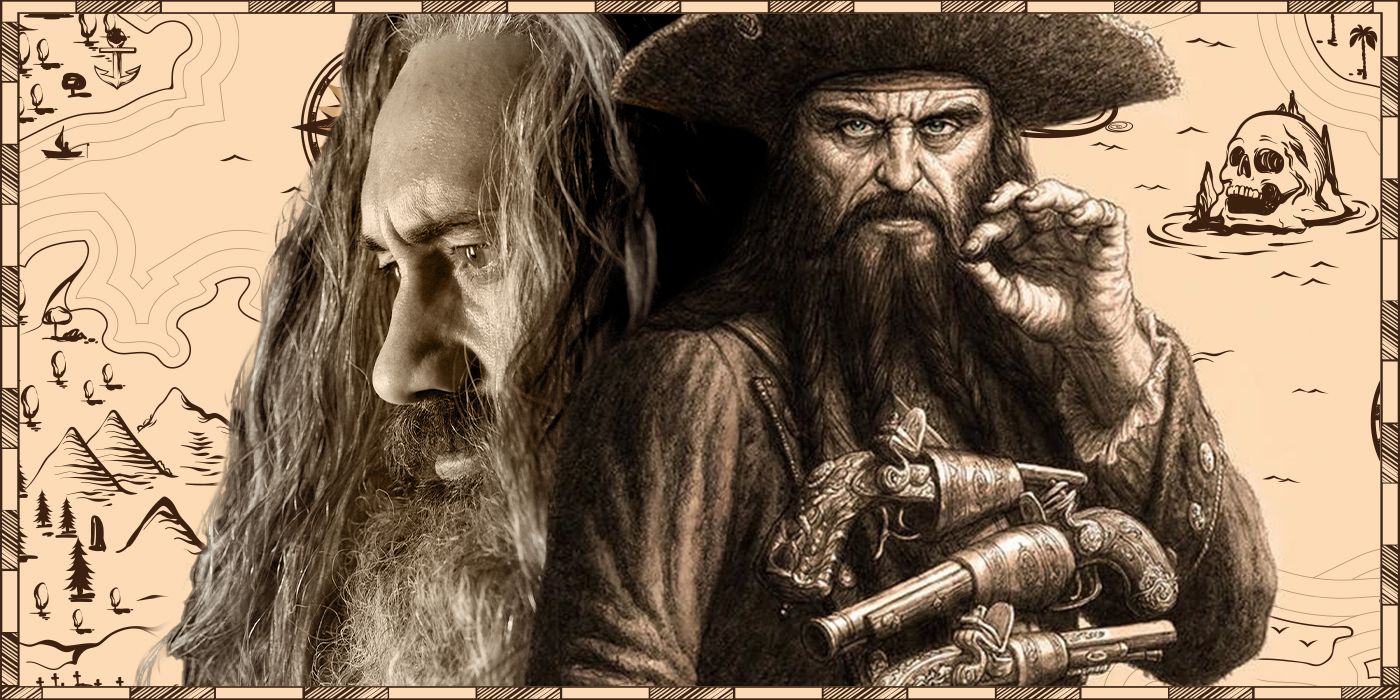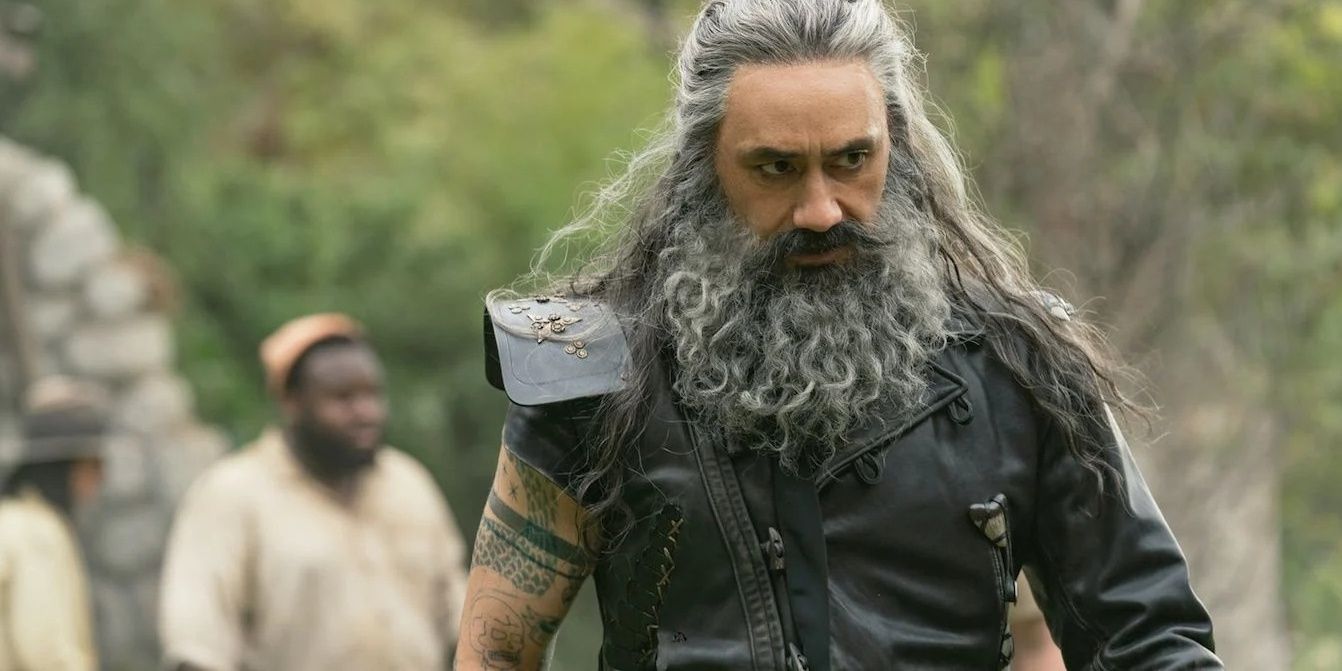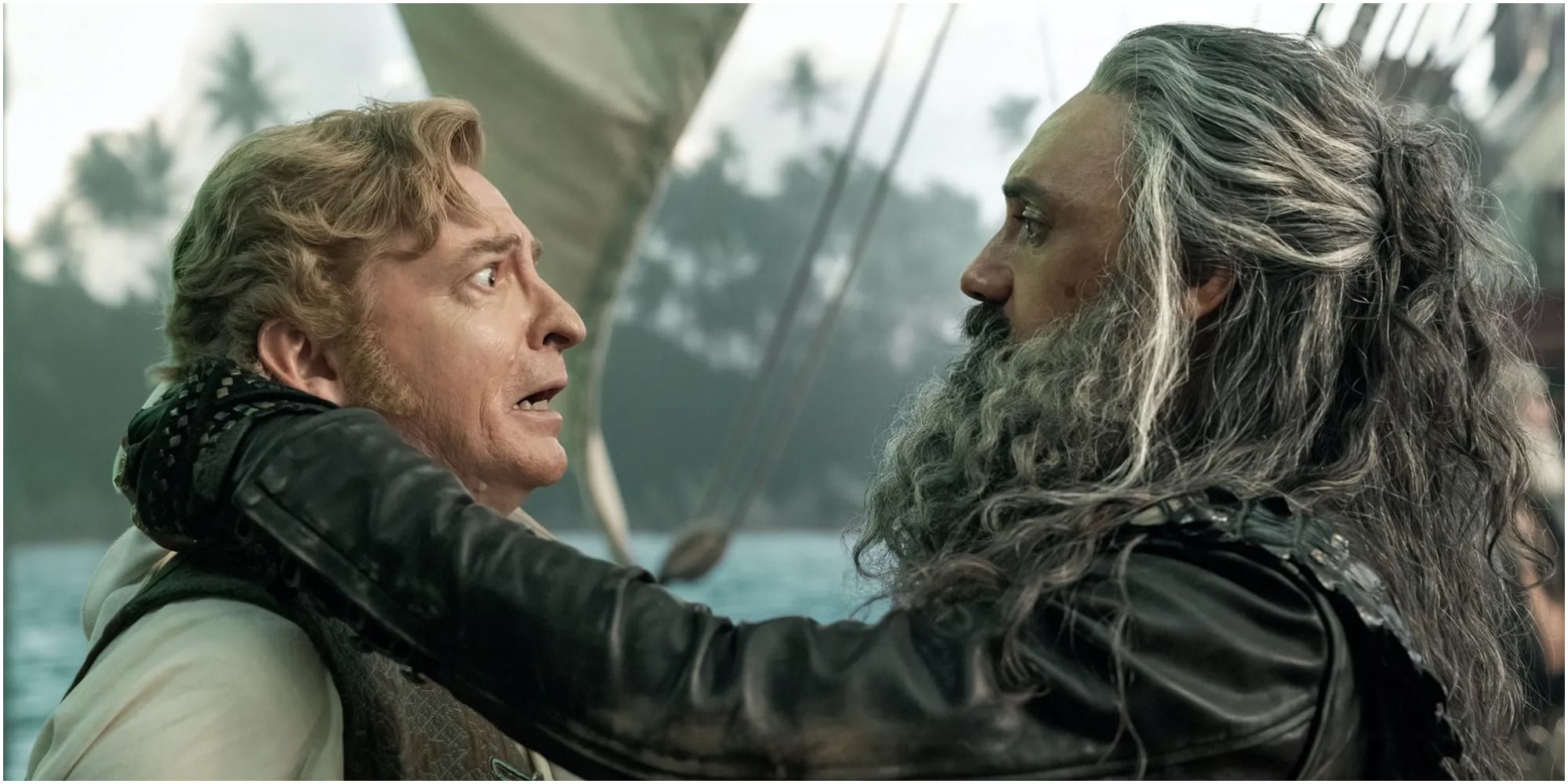There isn’t another pirate in history that is quite as well known as Blackbeard. Although historians have debated how much of the “Blackbeard legend” is actually true, that hasn’t stopped filmmakers from bringing him to the big screen. Blackbeard has appeared in countless films and television shows. Robert Newton created the cinematic ideal of the fearsome pirate captain in the 1952 swashbuckling film Blackbeard the Pirate. More recently, Ian McShane popped up as Blackbeard in 2011’s Pirates of the Caribbean: On Stranger Tides.
One of the issues that pirate films have had to deal with is the murky legacy of men like Blackbeard. While it’s fun to watch the swashbuckling sword fights, real piracy was a brutal practice. If you take the time to read about the ways that pirates tortured their victims, it colors films like Pirates of the Caribbean in a new light. In real life, Blackbeard was an actual villain, and not just a scenery-chewing bad guy.
The comedy series Our Flag Means Death is one of the rare projects that wrestles with the legacy of pirates. While the series certainly has its fair share of action and humor, it doesn't shy away from the cruelty of these men. The series is loosely based on the true story of Stede Bonnet (Rhys Darby), a wealthy British aristocrat who decided to become a pirate. He is completely ill-equipped. Bonnet is more than outmatched when his ship Revenge is targeted by Blackbeard (Taika Waititi). Waititi doesn’t just replicate what other Blackbeard actors have already done. He shows that the Blackbeard we all know only earned his name based on lies and deceit.
Our Flag Means Death does a great job at gradually peeling back the pop culture image of the character. When Blackbeard first shows up in the episode “A Damned Man,” there is no need for an extended introduction. Bonnet and his crew are familiar with Blackbeard's reputation; the appearance of his ship Queen Anne’s Revenge is enough to strike fear into the heart of any pirate, and certainly one as inexperienced as Bonnet. Waititi essentially lives up to the legend when he first encounters Bonnet. He barks orders at his crew before isolating himself in a private chamber. In one scene, he stands menacingly over Darby, threatening to brutalize his entire crew.
Initially, there’s no reason to doubt the sincerity of Blackbeard’s threats. Waititi’s interpretation isn’t very different from Newton’s, McShane’s, or the various other adaptations of the character. However, Waititi begins to show that Bonnet has taken Blackbeard off-guard. Blackbeard is used to treating his men as inferior; Bonnet is emotionally vulnerable in front of his crew. Although Blackbeard’s surprising emotional defenselessness is played for laughs, it doesn’t immediately transform him into a sympathetic character. He only opens up to Bonnet after he ruthlessly takes Revenge’s crew as his captives.
Our Flag Means Death allows Blackbeard to process his legacy in the same way that the viewer does. In the episode “Discomfort in a Married State,” Blackbeard admits to Bonnet that he feels burdened by his reputation. He no longer feels the obligation to commit acts of violence and believes that he is no longer challenged. However, Blackbeard is terrified of showing weakness in front of his crew. After his first mate Izzy Hands (Con O’Neil) casts his doubts about the captain’s fitness to lead, Waititi shows how Blackbeard’s spirit becomes hardened. His lifestyle doesn’t permit vulnerability.
What makes Our Flag Means Death so brilliant is that characters like Bonnet are only heroic by comparison. Sure, Bonnet adds a few kills to his resume, but in the chaos of the Golden Age of Piracy, this feels pretty common. Pirate characters like Izzy and Spanish Jackie (Leslie Jones) aren’t hesitant at all to kill someone in cold blood. The regime of the English Crown isn’t any more honorable. That doesn’t absolve Bonnet and Blackbeard of their actions, but it establishes the world they’re living in. Waititi captures how Blackbeard wrestles with the social parameters of the era, as he gradually becomes attracted to Bonnet.
For a show with a fair amount of off-color jokes, the LGBTQIA+ representation in Our Flag Means Death is handled with remarkable sensitivity by Waititi. Blackbeard uses the guise of his persona to mask his impulses from the crew of Queen Anne’s Revenge. Waititi shows that Blackbeard isn’t just living in denial; he’s never allowed himself to feel compassion for someone else. As he listens to Bonnet explain his own marital strife, Blackbeard realizes that they have more in common than he had expected. Bonnet feels that piracy is his calling; Blackbeard becomes re-energized in his profession. The fact that this is played like an “inspirational moment” is darkly comedic. Finally, these two men can be happy together! Now they’re going to start murdering people.
Blackbeard has become a character like King Arthur, Tarzan, or Robin Hood that’s been adapted so many times that it’s challenging for an actor to spin him in a new direction. We’ve gotten family-friendly Blackbeards (Disney’s Blackbeard’s Ghost), singing Blackbeards (Hugh Jackman in Pan), terrifying Blackbeards (Ray Stevenson in Black Sails), and even time-traveling Blackbeards (DC’s Legends of Tomorrow). Why not have a sensitive Blackbeard that is struggling with both his legacy and his sensitivity? By making a Blackbeard who is both cold-blooded and explicitly romantic on Our Flag Means Death, Waititi’s performance feels like a breath of fresh air.



